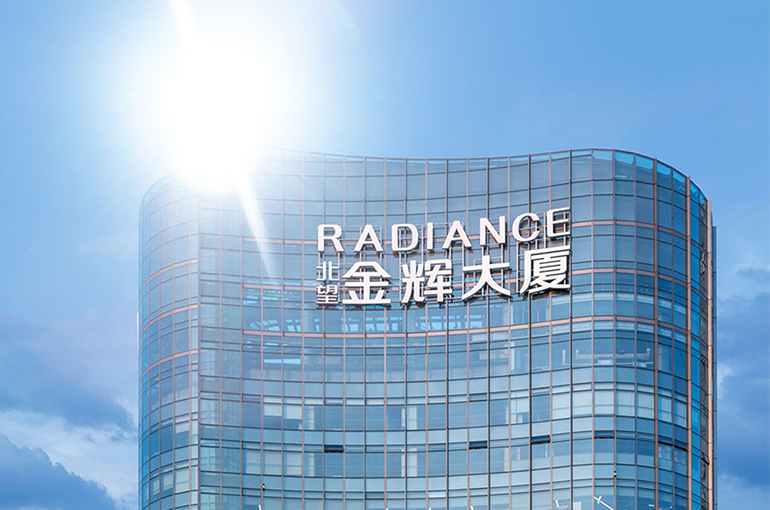 Radiance Sinks After Chinese Developer Defaults on USD300 Million Overseas Senior Note
Radiance Sinks After Chinese Developer Defaults on USD300 Million Overseas Senior Note(Yicai) March 21 -- Shares of Radiance Holdings Group plunged after the Chinese property developer announced it failed to pay off the unpaid principal and interests of a USD300 million overseas senior note.
Radiance [HKG: 9993] was trading down 11.7 percent at HKD1.73 (22 US cents) as of lunch break in Hong Kong today, after earlier dropping 14.3 percent to its intraday record low.
Radiance failed to repay its only unpaid overseas debt, which was due yesterday, the Beijing-based builder said in a filing to the Hong Kong Stock Exchange yesterday. The company is communicating with the note holders to actively seek out the best solution, it added.
The news caught the market by mild surprise because Radiance is one of the few private real estate developers with relatively good debt standing that secured a full-amount credit enhancement pledge from the government-backed China Bond Issuance Corporation in late 2022.
Afterward, Radiance issued debts on the market three times, raising a total of CNY2.8 billion (USD389.1 million), with the latest issuance dating back to Dec. 21, last year. The firm used the proceeds of the last issuance to replenish liquidity, ensure in-time delivery of ongoing projects, and pay off onshore and offshore due debts, according to its announcement then.
However, given Radiance’s debt scale, the amount of funds raised was relatively thin. And with the continuous downward trend of the real estate sector, which even led industry leaders such as China Vanke to feel debt repayment pressure, it is understandable to some extent that companies like Radiance are eventually defaulting on debts.
Radiance had CNY33.2 billion (USD4.6 billion) worth of unpaid liabilities as of June 30, last year, according to the firm’s semiannual earnings report. Its advances-deducted asset-to-liability ratio was 63.1 percent, and its net liability ratio was 61.3 percent, both figures declining from a year earlier.
But Radiance’s short-term debt situation was serious. As of June 30, the company had only CNY10.9 billion in cash and bank balance but had to pay CNY14.2 billion in debts in the following 12 months, meaning that its balance was just 77 percent of its short-term debts, with a non-restricted ratio between cash and short-term debt of 0.29.
According to a report released last year by rating agency Moody’s, Radiance’s cash and expected operating cash flow were not enough to repay its debts due in the following 12 to 18 months. Therefore, Moody’s downgraded the company’s debt rating and kept a negative outlook.
On top of that, Radiance’s sales income inched up only 0.7 percent to CNY18.3 billion as of the end of the first half of last year from a year earlier, with net profit down 58 percent to CNY523 million (USD72.7 million). In the first two months of this year, the firm’s sales income was just CNY2.1 billion.
Editors: Tang Shihua, Futura Costaglione